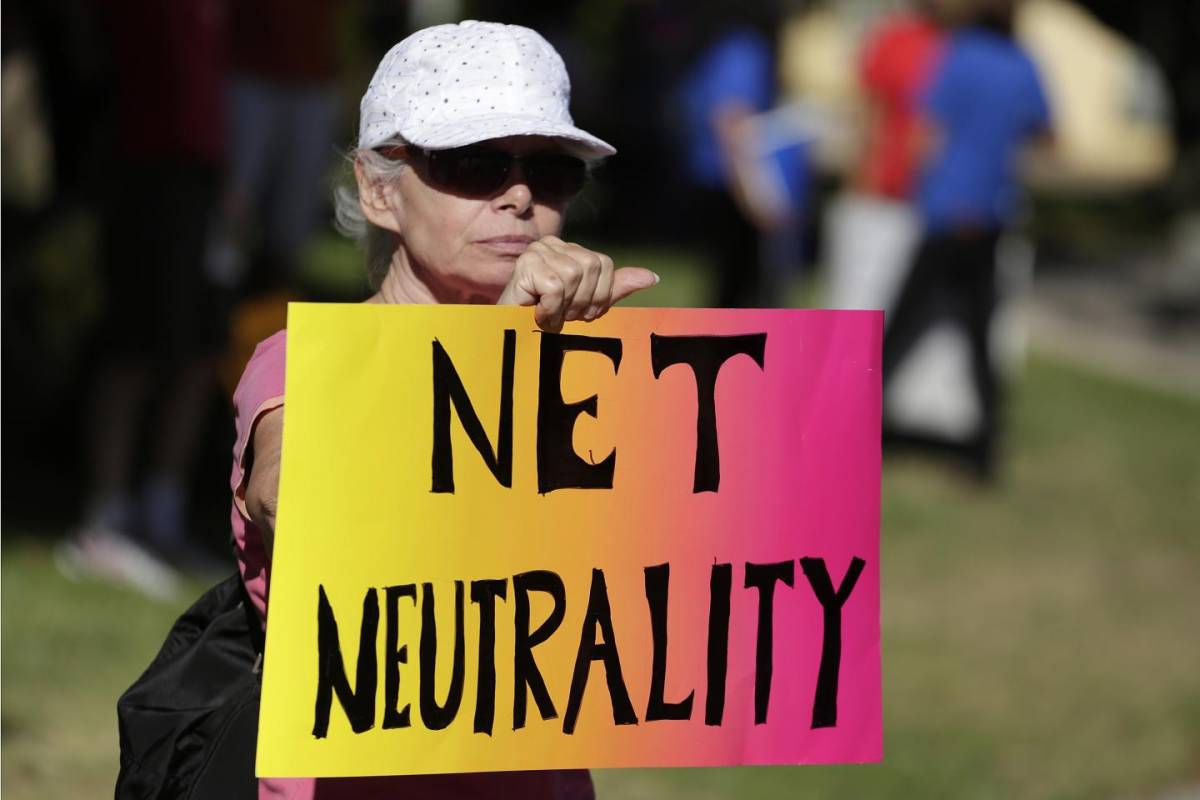FCC Officially Repeals Net Neutrality Rules, Rolls Back 3 Key Regulations

Obama-era net neutrality rules, meant to safeguard the directive that all traffic on the internet is treated equally, regardless of whether you're checking Facebook or streaming movies from Netflix, were officially scrapped Monday, June 11. This after the U.S Federal Communications Commission’s vote in December 2017 to repeal the rules came into effect Monday.
The rules, enacted back in 2015 by President Obama’s administration, also prohibited internet service providers (ISPs) like AT&T, which recently completed an $85 billion acquisition of Time Warner, and Comcast, which owns NBC Universal, from favoring their own content online over a competitor's.
Key net neutrality rules rolled back
As part of repealing the 2015 net neutrality rules, three key regulations were stripped away, per the New York Times:
- Blocking. Internet service providers could not discriminate against any lawful content by blocking websites or apps.
- Throttling. Service providers could not slow the transmission of data because of the nature of the content, as long as it was legal.
- Paid prioritization. Service providers could not create an internet fast lane for companies and consumers who paid premiums, and a slow lane for those who didn’t.
The one regulation that was spared is the so-called "transparency rule," which requires broadband providers to disclose how they manage their networks. In the absence of a firm ban on actions like throttling and blocking, the FCC now requires service providers to disclose when and under what circumstances they block or slow traffic and to disclose if and when they offer paid priority services.
Impact of net neutrality repeal
The reversal of net neutrality is a huge policy change at the FCC. It could have a big impact on how you experience the internet, though the impact is not likely to be felt right away. However, over time, this move could bring significant changes. Whether the changes will be for the better or for the worse depends on who you believe: FCC and proponents of the repeal, or the opponents.
The FCC's argument for repealing the rules is that they have impeded broadband innovation and investment since they came into force in 2015. Ajit Pai, the FCC’s chairman, who has long opposed the regulations, has said the rules were based on “hypothetical harms and hysterical prophecies of doom.” And so Pai has championed the Republican-led agency’s move to replace the 2015 rules with what they say are "common-sense regulations that will promote investment and broadband deployment."
But consumer advocacy groups, civil rights organizations, tech companies like Google and Mozilla, and majority of Democrats are less than enthused by the move to repeal the rules. This group says repealing net neutrality will lead to broadband companies controlling more of the internet experience.
“Not only is the FCC eliminating basic net neutrality rules, but it's joining forces with the FTC to say it will only act when a broadband provider is deceiving the public,” Chris Lewis, VP at Public Knowledge, a nonprofit that focuses on the open internet, told CNN in a statement. "This gives free reign to broadband providers to block or throttle your broadband service as long as they inform you of it.”
As ISPs like AT&T acquire more content companies, they could be inclined to give their own services priority on their networks, blocking competitors or limiting what you can access. This could lead to your internet experience looking more like cable TV, where all content is curated by your provider. Moreover, blocking practices could disadvantage startups looking to become the next Netflix or Google.
Public outcry over the repeal
The FCC’s move to repeal the Obama-era net neutrality rules has been met with fierce public outcry. Net neutrality supporters as well as tech companies, including Mozilla, Kickstarter, Vimeo, Etsy and Foursquare have filed lawsuits against the FCC to preserve net neutrality rules.
Several state governments have also launched lawsuits to ensure the rules stay in effect. Gov. Jay Inslee of Washington, a Democrat, for example, signed a law in March effectively replacing the federal rules. Other governors have used executive orders to force net neutrality, including the governors of Montana and New York. As of late May, 29 state legislatures had introduced bills to ensure net neutrality stays, per the National Conference of State Legislatures. Many of these bills, however, are still pending.
In a bid to overrule the FCC, last month Democrats successfully pushed through the Congressional Review Act (CRA) in the Senate. The House nevertheless has yet to take action, prompting Senate Democrats to urge Speaker Paul Ryan to schedule a vote.
The CRA would still need President Donald Trump’s signature to overrule the FCC, which seems unlikely to happen given Pai is the president’s appointee.
The fight isn't over yet
Net neutrality supporters vow the fight isn't over yet. They're calling on everyone who cares about the issue to continue pushing state legislatures to pass their own net neutrality measures. And they are urging those who care about reinstating net neutrality to vote for like-minded candidates in the midterm congressional elections and in local and state elections.
If Democrats take control of the White House in 2020, a new Democrat-led FCC could reinstate the rules, but it would have to follow the same rule-making process it did last time.
“Internet rights are civil rights," Jay Stanley, an ACLU senior policy analyst, said. “Gutting net neutrality will have a devastating effect on free speech online. Without it, gateway corporations like Comcast, Verizon and AT&T will have too much power to mess with the free flow of information.”




















